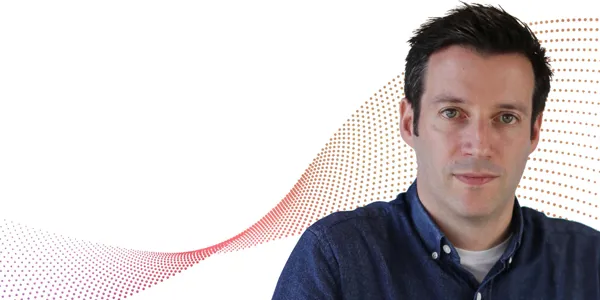Richard Joseph
If you want to run your own business, you have to learn how to sell

Published: 03/04/2020
Entrepreneurship ran in the Joseph family. Richard Joseph’s father encouraged his sons’ interest in eclectic inventions from an early age, and took steps to involve them in his glass processing business.
However, the pair did not take the easy route by joining the family firm. After university – Antony at Central St Martins and Richard at Cambridge – they took up industrial design positions. Richard worked for Dyson, while Antony worked on a range of cutting-edge consumer brands. However, they kept their eye in with the family business based in Birmingham, and when Richard decided it was time to create their own business, his father’s influence turned out to be useful in more ways than one.
I wanted to be designing a product and making it commercial. Looking at the price, brand, finding customers who would buy it! That was always really interesting. My dad said that if you wanted to run your own business, you had to learn how to sell. He encouraged me to be a sales guy for him. At the time, I thought it might just be a ruse to get me into the family business, but it proved invaluable experience. He never gave me any financial help, but he would help me out with stock or supplies that we could use as the equivalent of seed capital. This is what we used to get the business off the ground.
They started out with four products, including a glass chopping board that they still make today. The aim was to make functional products work better with innovative clever design.
The early years were difficult. Richard says: “It was tough to find retailers willing to take us on. We weren’t big enough and they kept telling us to come back when we’d grown the product range. There were two light-bulb moments. The first was with a buyer at Allders department store, who made a £38,000 order, which instantly doubled our turnover. The products sold well and they re-ordered. The second was our move into Europe. I got hold of the telephone book, called the department stores and if they spoke English, I’d go and see them. We found retailers in France, Germany and Switzerland, so I hired a Ford Ka and set off round Europe. We got traction with many of these companies before we got traction in the UK. We now export to 104 countries, and it is 80% of our business.”
If that makes it sound easy, Richard has had his share of challenges along the way. “We haven’t done anything to put the business at risk, but we have struggled to protect our intellectual property (IP) at times. We didn’t understand the importance of protecting our designs, particularly in China. We have had huge IP infringement problems. We now have an in-house legal team dedicated to tackling counterfeiters. We should have had a more robust process in place at the start.”
The business has always employed sales and distribution people on the ground, but has aimed to keep the products universal: “We now have overseas offices in the US, Japan, France, Germany and China and we try to make sure the product offering is largely the same. We keep the product global and develop ideas with that in mind. That said, Japan and the US are two of our biggest markets and we have to adapt to different cultural and culinary requirements.”
While the Joseph Joseph brand is instantly recognisable, Richard believes this is more a reflection of the rigour of the design and production process than any advertising or marketing, which they have kept to a minimum. “We have always put all our efforts into the product,” he says. “To me, Joseph Joseph stands for a promise – high quality design and functionality. It is a flag for quality.” It takes the company two years to develop each product, with a pipeline of 50-60 products a year. Repeated testing is key: from concept to prototype to production, plus hygiene testing, food tasting and focus groups.
The company has never taken external capital, and Richard believes that this has given them the freedom to run this model. They don’t have pressure to deliver short-term profits, which has allowed them to invest for the long-term.
As for working with his brother, Richard says it works well, but the two have clear roles and responsibility. Antony, with his arts background, heads up the design element and Richard, with his business background, does everything else. He adds: “We are very in tune in terms of what we want from the business. There are always pressures, and you have to deal with them as they come up. Being brothers, we get that personal stuff over quicker. We’ve held every grudge, had every fight. There’s nothing new. We both feel the pressure to deliver for the other person. That said, I don’t think of us as a family business. We don’t have any other family
members in the business and we employ professional people to run things for us, who are properly incentivised. It is an ambitious place for people to work.”
